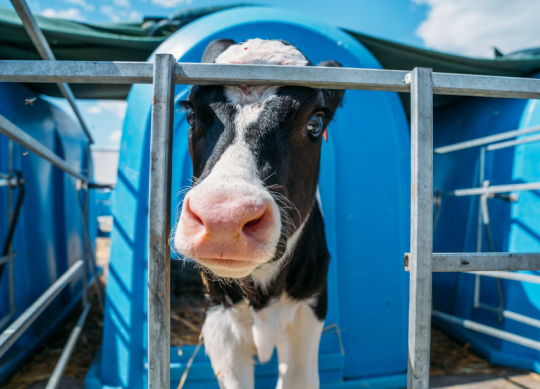Pour Hydration to Heat-stressed Calves
Penn State University researchers underscored the importance of water for calves in a recent publication. They said a 2019 study by Iowa State University researchers showed that the full water requirements of calves are typically not met because a sizable portion of calves are not offered free-choice water until about 17 days of age.
The researchers noted that offering supplemental drinking water starting at birth resulted in better growth performance and apparent total tract digestibility of nutrients. Offering water starting on day 1 of life also had improved rumen function, leading to improved growth and feed efficiency – an important consideration in today’s climate of high feed costs.
And in the heat of summer, even water alone may not be enough. Providing free-choice electrolytes, or adding a mid-day electrolyte feeding, is a growing practice among calf raisers in the United States.
New York-based calf milk replacer manufacturer Denkavit detailed the benefits of adding an electrolyte, which include:
- Balances the loss of sodium, potassium, and chloride when depleted during a time of diarrhea. A good quality electrolyte will contain all three of these minerals.
- Helps improve water absorption in the intestinal cells, specifically sodium help regulate this process. When sodium levels are low, the osmotic pressure in the intestinal lining of the calf cannot be properly regulated.
- Corrects for a low blood pH. When sodium and potassium levels are decreased, the blood pH can drop, putting the calf at risk for acidosis. Moisture loss due to heat stress also can cause calves to become acidotic. In this case, a good quality electrolyte will contain a good alkalinizing agent (sodium bicarbonate).
- Provides a source of energy to the calf. During a state of diarrhea or scours, some of the nutrients from the milk replacers are malabsorbed. A good quality electrolyte will contain a sugar base to provide energy, such as glucose or dextrose. Sucrose is not easily digested by the young calf and is not considered an effective sugar base in electrolytes.
- It is crucial to continue feeding milk when calves are suffering from diarrhea because oral rehydration therapy will never supply enough energy to correct the deficit.
- Osmolarity is equal to or lower than that of the calf. A calf has bodily fluids at an osmolarity of 300-330 mOsm/L. If an electrolyte with an osmolarity >600 mOsm/L is fed, this can actually reverse the flow of water from the cells leading to further dehydration.
Quigley’s one caveat: electrolytes NEVER should be added to whole milk or milk replacer.
Dairyherd.com July 6, 2022



